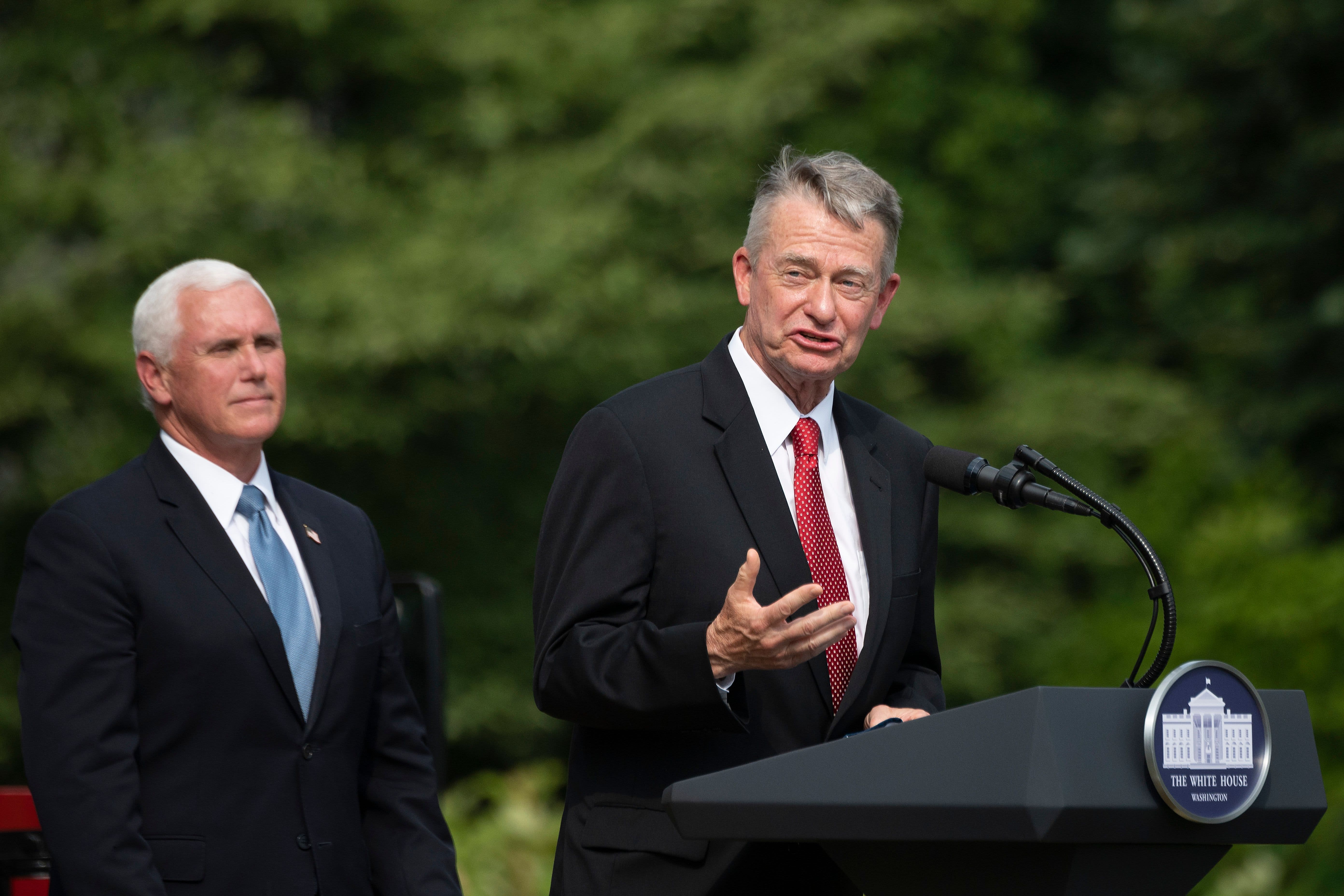At least 11 states ending unemployment benefits early. Gig workers may be able to keep them

Idaho Gov. Brad Little (right) and former vice president Mike Pence at the White House on July 16, 2020.
Jim Watson | AFP | Getty Images
At least 11 states are opting out of federal unemployment programs months early. But some workers may be able to keep the extended benefits.
The moves, made by officials in Republican-led states, would cut off benefits as early as June 12.
The aid includes an extra $300 a week paid on top of typical state benefits. The long-term unemployed, as well as self-employed and gig workers, would lose their entitlement to benefits outright.
The American Rescue Plan offered these funds through Sept. 6.
“This is really hastening the [benefits] cliff,” according to Nicole Marquez, director of social insurance at the National Employment Law Project. “We’re concerned with states taking that action abruptly and prematurely.”
Domino effect
Montana Gov. Greg Gianforte started the domino effect on May 4.
Since then, at least 10 others have announced they will exit the federal unemployment programs, which have been in place since March 2020.
They include Alabama, Arkansas, Idaho, Iowa, Mississippi, Missouri, North Dakota, South Carolina, Tennessee and Wyoming. More may soon follow.
More from Personal Finance:
The stock market is sliding. Should you get out?
Prices are going up — here’s what inflation means to you
Social Security’s cost-of-living adjustment could be higher next year
Officials attributed the decisions to labor shortages in their respective states. Enhanced benefits, they claim, are keeping people from returning to work and making it difficult for businesses to hire for open jobs.
“My decision is based on a fundamental conservative principle — we do not want people on unemployment,” Idaho Gov. Brad Little said Tuesday. “We want people working.
“A strong economy cannot exist without workers returning to a job.”
However, critics say the unemployment benefits don’t play a big role in any labor shortages.
Instead, pandemic-era factors like erratic school openings, child-care duties, a lingering virus threat and relatively low vaccinations to date among working-age Americans have kept people sidelined, they said.
Pandemic Unemployment Assistance
Some experts think the U.S. Labor Department may be able to prevent the loss of benefits for the self-employed, gig workers and others who receive aid through the federal Pandemic Unemployment Assistance program.
The U.S. Labor Department has the legal power to keep that aid flowing due to specific wording in the CARES Act, which established the program, according to a National Employment Law Project letter sent Tuesday to Labor Secretary Marty Walsh.
However, the same doesn’t apply to other federal programs, including one offering an extra $300 a week, the letter said.
“Our position is that the Department of Labor has this authority and that they should utilize their authority to be able to ensure PUA extends to its full range,” Marquez said. “We would argue that given that authority, DOL must take that action.”
There are two options, according to the letter: U.S. labor officials could require states that opted out to keep paying PUA benefits or other states could choose to take over administration of the lost PUA benefits.
There are some hurdles to both approaches, including potential lawsuits from the states opting out of the federal aid, Marquez acknowledged.
A Labor Department official acknowledged receipt of the letter but declined to comment.




